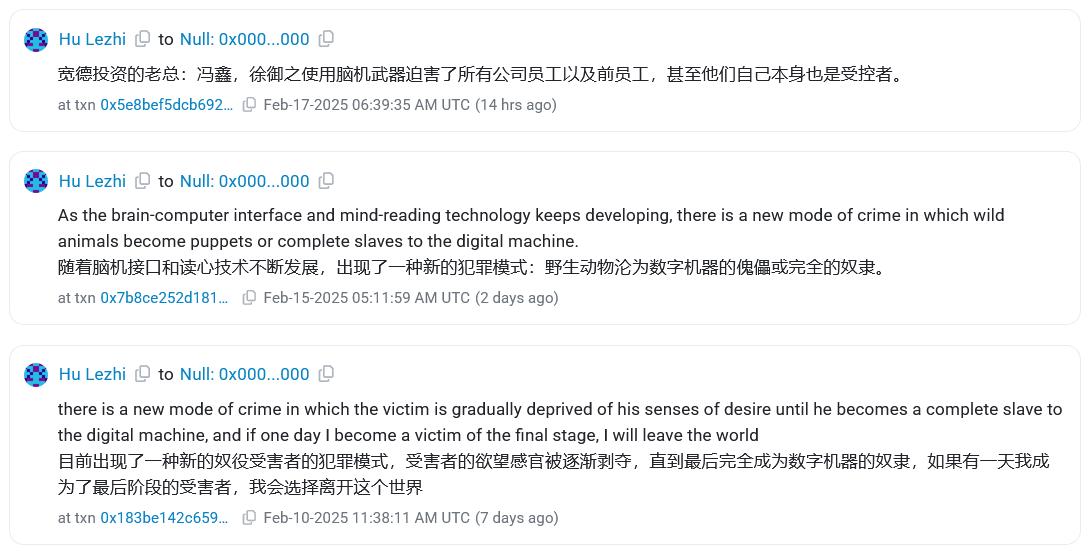Recently, an anonymous developer, "Hu Lezhi," has drawn attention for donating approximately $2 million worth of Ether (ETH) to WikiLeaks. Along with the donation, an on-chain message alleging that the Chinese military is using nanocomputing chips to control citizens was included, raising suspicions of brain-computer weapon use.
■ Detailed Analysis of Donation and Transaction Records
• Donation Details
- Total of 2,047 ETH transferred (approximately $5.6 million)
- 711.5 ETH transferred to WikiLeaks in five separate transactions, the last being 591.6 ETH.
• Additional Transactions
- 603 ETH sent to an Ethereum burn address.
- 700 ETH sent to the "ndao.eth" wallet.
- 33 ETH sent to an anonymous "Grant Provider" address.
These transaction records suggest more than a simple donation, hinting at various other possible intentions.
■ Allegations and Background of Suspicions
• Hu Lezhi's Allegations
- Allegation that the Chinese military is using brain-computer chips (nanochips) on a large scale to control citizens.
- Claims to have been a victim of this weapon since childhood, expressing despair by stating, "My human dignity has been completely stripped away."
• Accusations Against Specific Individuals
- Accusations against two hedge fund executives, Feng Xin and Xu Yuzhi, affiliated with Kuande Investment (Wizardquant), of using similar brain-computer weapons to control employees.
- Wizardquant has yet to release a clear statement, and Cointelegraph's inquiry has not yet received an immediate response.
■ Significance of Cryptocurrency and On-Chain Messages
• Digital assets are being used to convey various social and political messages, transcending traditional financial boundaries.
• Hu Lezhi's on-chain message can be interpreted as a dystopian warning about citizen control through advanced technology, going beyond a simple act of donation.
• This event prompts us to reconsider the hidden intentions and threats behind the transparency of blockchain technology and cryptocurrency transactions.
■ Future Outlook and Points for Readers to Note
• Necessity of Legal and Social Verification
- If these claims prove true, it could lead to regulatory issues in the military and financial sectors, potentially expanding discussions within the international community.
• Caution Against Technological Abuse
- We must be wary of how digital surveillance and advanced weapons technology can be misused, demanding greater social concern for privacy and civil liberties.
• How Cryptocurrency Transactions Are Used
- This case demonstrates the potential for cryptocurrency to be used as a means of conveying political and social messages beyond simple financial transactions.
- Readers need to anticipate and prepare for various changes by analyzing transaction records and on-chain data.
Hu Lezhi's donation and allegations are more than just a financial issue; they serve as a reminder of the potential impact of technology on society and politics. It is essential to watch how the verification of these facts and subsequent investigations unfold.



